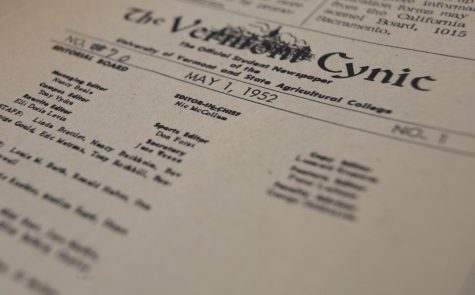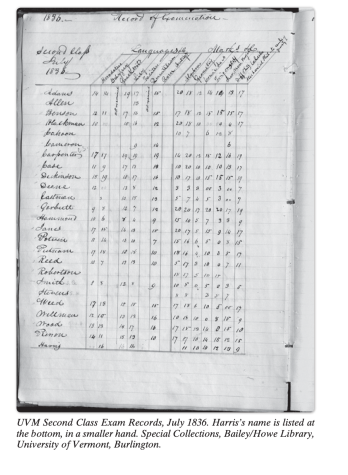Happiness Is Not A Warm Gun
More often than not, “death be not proud,” for death does not bear the torch of honor as it once did.
So many deaths are today attributable to actions such as careless drug usage and reckless driving.
And, sadly, these types of deaths are the ones the media chooses to glorify.
News reports thus undermine the magnitude of death.
They constantly present death to the world, talking up every murder that leaves a little girl without a mother, a new mother without her maternal role model. But that unending stream of reports on deaths does not produce a public highly sensitive to the nature of permanent loss; rather, such accounts desensitize society.
Why is more of America not doing anything about the superfluous war Bush wishes to declare and fight to his reelection? Because most of America has no concept of war-no concept of the lives lost in such battle.
Yet most of America hears daily about deaths far flung across the nation.
Just as often, though, does America tune out if the accounts are not of the dramatic, gossip-worthy nature.
America is bored to tears of death if scandal is not part of the feature presentation.
How, then, can such an America comprehend what it and other countries have to lose in war?
Nothing more than they see on the 11:00 p.m. news, right?
The mere stuff approaching entertainment value, the wealth of stories to be taken in directly before bed, right?
Wrong.
War is not simply comprised of pictures on the screen.
Bloodshed is not a mosaic of particulars highlighted by talking heads ever-glossy, airbrushed and spackled, blowdryer-coifed.
Soul infidels, this breed.
To their miscredit, citizens do not apply such massive killing to the feelings they would have/have had if/when they lost a loved one. Thus do we have a people who, oblivious to the reality of war, make no effort to stop it.
And I was no different. Throughout most of my life, when death was the word, I was out of my element.
It was not until late senior year that I got my first personal taste of death, a bitterness first stomached when my wonderful friend Randy died.
Of little but at least some comfort, though, was that his passing, although sudden, was a natural one, a defect in the heart never before detected.
However, he was but 20 years old, so Randy’s exit from livelihood was certainly a shock, a disappointment and a hell of an injustice.
Still, I was not exceptionally close with him, so I perhaps had the fortune to be somewhat removed from the direct impact. Fast forward, now, to November 30, 2002, the day after Thanksgiving-the day Jeff died. Or more specifically, the night.
I had no idea until the next morning as I got ready to leave my house and return to school. While saying goodbye to my pal’s mother, I received a phone call from another friend who asked me, “Did you hear?”
I had no idea what she was talking about, but as soon as she told me, I wished I still didn’t.
For she was informing me that “Jeff passed away last night.” However, Jeff did not pass.
I will always disagree with that terminology.
No peaceful end is based in a 60 mph collision with a tree.
No mangled car and loss of life gives way to anything that could be entitled a “passing.” Passing connotes demonstrating enough prowess in a subject so as to be able to move on to another skill one wishes to master.
Somehow, I don’t think that Jeff had the opportunity to demonstrate enough prowess in living that he was then awarded the privilege of trying his hand at being lonely.
Even if he was allowed special permission to transcend life, I doubt he would jump at the chance to pass into the next realm of tests, those completely without the aid of anyone or anything he has ever known.
In this case, I think Jeff would have chosen failure, as failure forces one to “try, try again” and repeat whatever process one has just failed.
In this case, if passing is hardly the reward for a job well done-in the case of death, I think failure is much preferred.
Passing has permitted Jeff to leave behind all his duties from the past, but my hunch is that he would adore the opportunity to repeat those tasks.
I would venture to guess that Jeff would have chosen the “punishment” of “failure” any day.
Jeff would know a failure when he saw one, because it would be so out of sync with everything else he did.
For he was motivated and very used to passing everything he did, succeeding for the betterment of himself and his friends and family.
Therefore, I highly doubt that he would consider to have been ‘successful’ by ‘passing’ a freak occurrence that left him and his empty.
Passing this exam, this turn in the weather, this bend in the road, this slick stretch of the dark and frozen, was hardly a reflection of his intelligence so much as it was indicative of Jeff’s luck.
Jeff, a man who, in an effort to rid his friend’s house of paraphernalia whilst the cops rampaged it, threw a bong out the window and hit a cop.
Jeff, a man whose graduation robe was stolen out of his car on graduation day.
Untimely death was no test that Jeff passed-it was a typical materialization of his terrible fortune.
But if death is a test, it is an unavoidable one and it does no service to those being tested.
Death serves as a test all people pass by default and with flying colors.
Say what you will about the SATs-I think death is the most unfair standardized test of all.
It is the testing ground for people to be stripped of their lives.
It is a test sure to leave people without the rest of their waking days.
And yet we say that these people have “passed.”
How imprecise we are with language.
Moreover, how desensitized we are to language.
We do not evaluate the weight of our words until we are forced to.
And we are forced to only when what we say hurts too much to go uncorrected.
How very superficially we usually meander about through conversation, then, until we are personally affected by words.
We are but falsely engaged in discours until our emotions become ruffled after some horrible event hits home.
Only then do we become aware of the nature of what we say.
But the vast majority of the time, we do not listen to ourselves.
We do not hear what we say as we float about.
Our words fall upon deaf ears.
At best, our verbalizations are half-heard.
Our will to detect and process content mumbled in lackluster by any member of the conversational troupe flies at half-mast.
After all, how often do you really react to people growling, “I want to kill her?”
How frequently do you jump at the defeated plea, “Shoot me,” drip from your weary friends’ parched lips?
There is no true comprehension of such words until you experience death for yourself.
You cannot fathom what would be the result of these words coming true.
You cannot determine how many people would be forever devastated, hollowed, if people were to “kill her,” if someone actually answered someone else’s call to “shoot” him. Seriously, imagine that!
Ah, but you cannot, and frankly, I would not wish such comprehension on you.
But do not forget that I am well aware of the weight of your words, and so are so many others. No longer am I a stranger to death, and I have not been for some time.
If you are still largely unaware of death, I hope you can remain perpetually distanced, but not ignorant.
For ignorance is not optimal when a staggering number of people you know have seen the Grim Reaper up close and personal.
These are the folks who do not take too kindly to you spewing venomous death wishes for either yourself or others, no matter the degree of jest.
At the end of Christmas break, my best friend called me and asked, “Did you hear about Justin?”
I had not heard anything about Justin in two years, actually, but I have gotten to the point where, certainly, I knew what my friend was about to say was going to be bad, but I could not have guessed how bad.
Well, as it turns out, the fellow had taken his own life.
He had commit suicide.
So unhappy, so unhelped by his own thoughts or the airy actions of his fellow man, Justin reached the conclusion that death would be the best answer.
Did he pass a test?
Did he so thoroughly conquer life that he was deemed to have ‘aced’ it and was thus no longer in need of being immersed in its trials and tribulations?
Hardly-in fact, I think he considered himself to have failed at life, and that is why he thought to try his hand at something else.
He would simply not fancy himself to be an individual who passed some great evaluation.
Yet he, too, in the vernacular, has passed.
And, hey, his passage must be the case, because he certainly is not giving life another shot as failure would demand of him.
In short, rare is the case in which someone merely passes away.
Perhaps elderly individuals qualify for passage after long lives well-lived, easing into Heaven while already immersed in sleep, bathed in the nocturnal veil. These, too, are the people who respect life.
Consequently do they equally respect death
Therefore, the elderly recognize the weight of all things that produce the loss of life. Through all the wars they have known, after all the battles they have experienced personally versus vicariously via snippets on t.v., the elderly feel fully each cry of “War!”
The oldest generations of our country do not go about spouting “Someone shoot me,” nor do they utter the cry “I’m going to kill her!”
For the elderly have seen death manifested in disease, in epic battle, in the eyes of their neighbors left widowed by the atrocities of such epic battles. They have not, fortunately, been desensitized to the mention of death.
Their minds, after all, have not grown up tainted by the visual pollution that is network news.
The elderly are not accustomed to a rampant, vicious, bloodthirsty media happy to project violence of all kinds on the screen.
Yes, they have several more years personal loss under their belts.
Indeed, personal loss is necessary for the full meaning of death to permeate one’s thoughts and actions.
But remember that, despite our young ages, so many of us have already experienced such loss.
Recognize that we are astonished when you refer to a 19-year-old’s fatal overdose as him “passing away.”
Please notice that we cringe at the thought of Bush’s looming slaughterhouse.
And certainly not least of all , observe us as we crumble when we hear you wish death upon yourselves.
Take heed that you don’t allow yourself to think of a disemboweling as “passing.”
Be aware of what you wish for; identify your desire for immediate termination as temporary, but a mood, much akin to the tides which rise and fall.
Be careful that you don’t sit back as eternity is imposed upon your neighbors.
Please, friends, pay attention! Death is forever.










